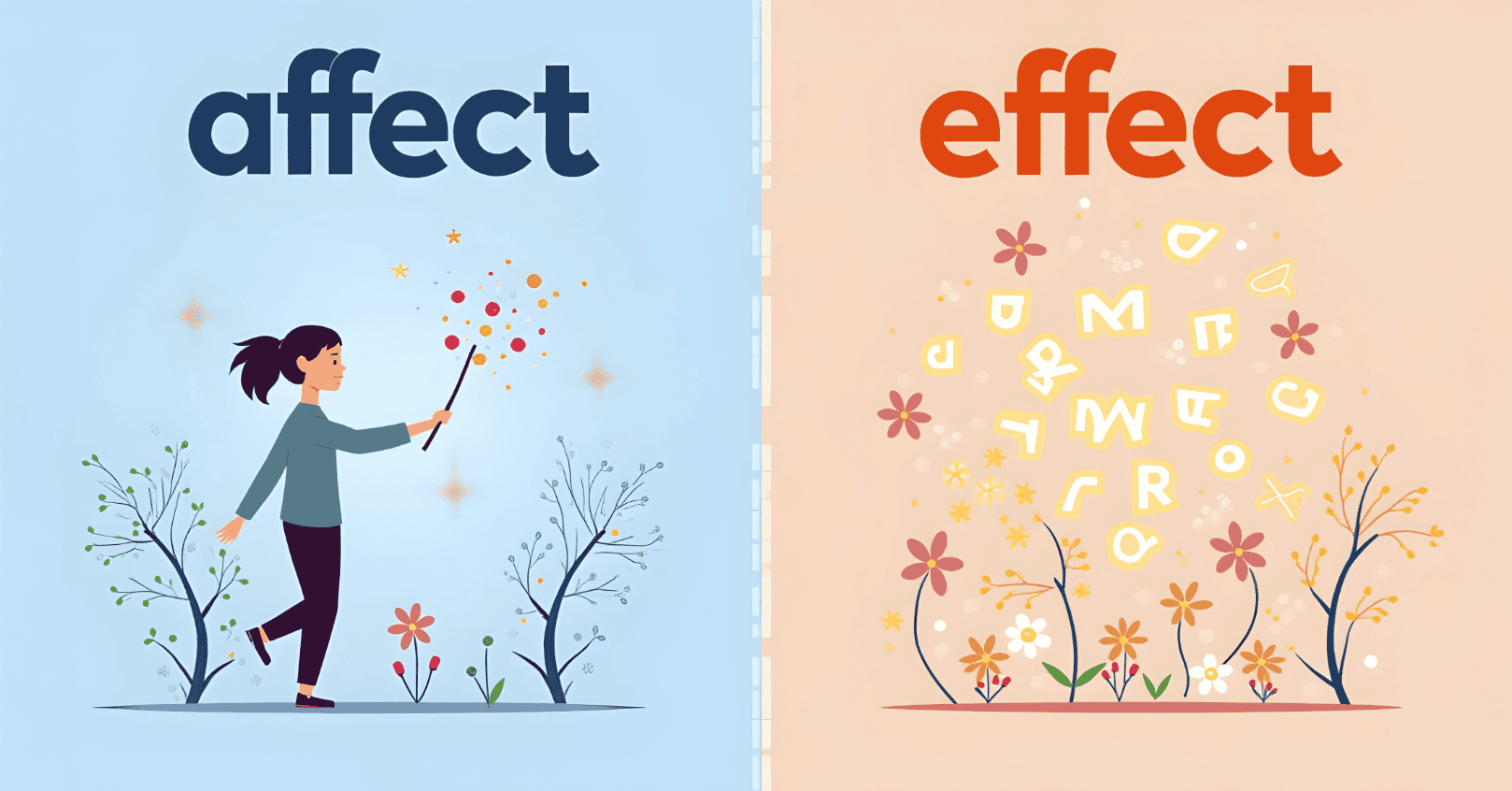
We’ve all been there—you’re writing along, feeling brilliant, and then you hit that speed bump: affect or effect? Even seasoned writers pause at this one. The good news is that once you know the difference, it’s easier than you think to get it right every time.
The Quick Answer
- Affect is usually a verb: it means to influence or to act upon.
- Effect is usually a noun: it means the result or outcome of something.
Examples in Action
- Affect (verb):
- “The heavy rain will affect our travel plans.”
- “His words deeply affected her confidence.”
- Effect (noun):
- “The heavy rain had a negative effect on our travel plans.”
- “His words had a lasting effect on her confidence.”
A Handy Trick to Remember
- If you’re describing an action, use affect.
- If you’re describing an end result, use effect.
- Think: A = Action, E = End result.
Bonus Twist: Exceptions to Watch
English wouldn’t be English without exceptions:
- Affect can also be a noun in psychology, meaning an emotional expression:
- “The patient displayed a flat affect.”
- Effect can also be a verb, meaning to bring about:
- “The new manager will effect positive changes.”
These cases are less common, but as a writer, it’s good to know they exist.
Why It Matters for Writers
Choosing the wrong word may not confuse every reader, but it does weaken your credibility. Using affect when you mean effect is like wearing mismatched shoes—you can still walk, but people might raise an eyebrow. Precision keeps your writing sharp and professional.
✅ Takeaway
Use affect for action, effect for outcome. Once you’ve got that down, you’ll affect your readers positively and leave a lasting effect with your words.















Comments